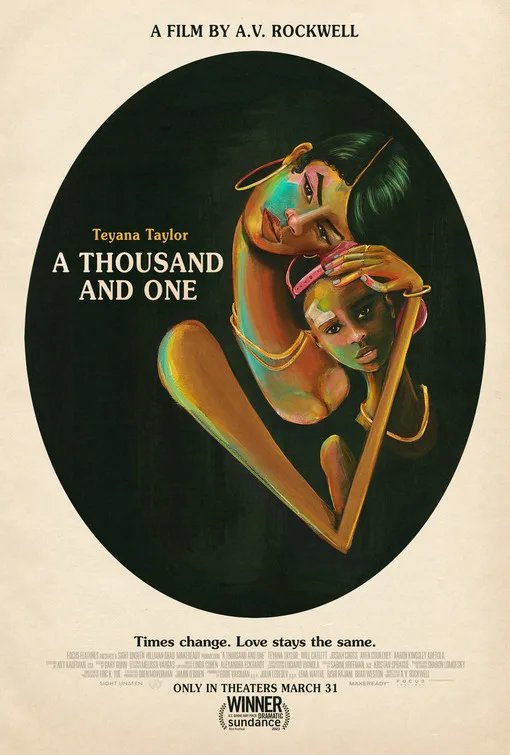A.V. Rockwell’s “A Thousand and One” was the somewhat surprising winner of the Grand Jury Prize at Sundance a couple of months ago, a trophy taken home by major movies like “CODA” and “Whiplash” in past years. While other films were considered frontrunners, it feels like Rockwell’s heartfelt drama took the prize largely because of the sheer force of its central performance, a true breakout for Teyana Taylor. It’s easily one of the best performances so far this year, one of those turns in which you have to remind yourself that you’re watching an actress—that’s how completely she fades into the character, a woman who makes some tough decisions to protect her son. Taylor has a remarkable ability to be present in a scene, responding as if she’s interacting in the moment, not reciting rehearsed lines or blocked movement. She’s organic in a way that elevates a script that has some significant structural problems and battles credulity in the final act. She’s so good that, by that time, you won’t care. You’ll be too invested in her story to question where it ends.
Taylor’s Inez is a New York resident returning from Rikers Island when the film opens. Only 22 years old, she carries herself with the determination of someone who has already lived so much life and knows what she needs to get through this tough world. What she needs more than ever is her son Terry (played by Aaron Kingsley Adetola, Aven Courtney, and Josiah Cross at 6, 13, and 17, respectively), but he’s been in the foster system while Inez was behind bars. When six-year-old Terry has an accident that lands him in the hospital, Inez makes the impulsive but understandable decision to take him home. Who could possibly raise him better? And what’s one more kid out of a broken foster system, one that damaged Inez too?
Inez forces Terry to change his name and not tell anyone about his background. And yet “A Thousand and One” is less of a thriller than that synopsis might suggest. Inez and Terry share a secret that defines their relationship, something that bonds them as their NY neighborhood shifts and changes around them over the ‘90s. Rockwell regularly uses sound bites and news items to convey the energy of NYC in this era and comments on the gentrifying world around Inez. It gives her arc the tenor of a survival story by making her the rock-solid center of a world that spins around her. She’s not on a set. She’s in the real world that’s zipping by her as she holds so tightly to her child.
Inez eventually marries a man named Lucky, played by William Catlett. But the film centers on the Inez/Terry dynamic, giving the traditional mother/son drama a new structure by emphasizing how quickly it could be taken away. Without turning it into a genre piece, the decision that Inez makes and the secret that Terry has to hide creates a symbolic urgency to their relationship. Every mother worries their son could be taken away by violence or tragedy, but Inez has to raise her boy in a world where that threat is more immediate. We have seen dozens of stories about single mothers who overcome adversity, but the narrative here makes it feel new again as we feel Inez’s tough decisions and how they shape Terry’s worldview.
Much of that veracity collapses in a final act I’m not sure the film needs. Without spoiling, there’s another secret in Inez and Terry’s life that completely recasts everything that came before in a different light, and the narrative decision pushed me out of a story that had felt so intimate for so long. The movie doesn’t need a twist. It’s done so much to make Inez, Terry, and the world they inhabit feel real; it’s a splash of cold water to be reminded this is a melodrama, and maybe always was. The final scenes are manipulative in a fashion that the movie otherwise defies for most of its runtime.
However, Teyana Taylor holds her head high through it all. Even as the film falters narratively, she’s a force of nature embodying a person more than just playing a role. She captures the soul of a woman who knows her son needs her to navigate this dangerous world. And that she needs him too.
In theaters now.




















